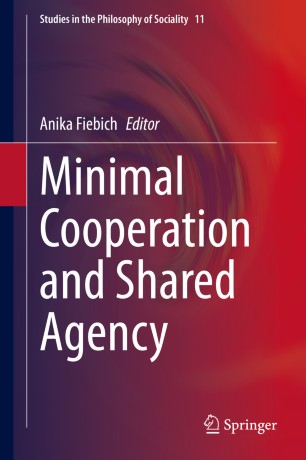

Most ebook files are in PDF format, so you can easily read them using various software such as Foxit Reader or directly on the Google Chrome browser.
Some ebook files are released by publishers in other formats such as .awz, .mobi, .epub, .fb2, etc. You may need to install specific software to read these formats on mobile/PC, such as Calibre.
Please read the tutorial at this link: https://ebookbell.com/faq
We offer FREE conversion to the popular formats you request; however, this may take some time. Therefore, right after payment, please email us, and we will try to provide the service as quickly as possible.
For some exceptional file formats or broken links (if any), please refrain from opening any disputes. Instead, email us first, and we will try to assist within a maximum of 6 hours.
EbookBell Team

4.8
84 reviewsThis volume examines minimality in cooperation and shared agency from various angles. It features essays written by top scholars in the philosophy of mind and action. Taken together, the essays provide a genuine contribution to the contemporary joint action debate.
The main accounts in this debate present sufficient rather than necessary or minimal criteria for there to be cooperation. Much discussion in the debate deals with robust rather than more attenuate and simple cases of cooperation or shared agency. Focusing on such minimal cases, however, may help to explain how cooperation comes into existence and how minimal cooperation interrelates with more complex cases of cooperation.
The contributors discuss minimality in cooperation by focusing on particular aspects. For example, they consider how social roles might deliver minimal cooperation constraints or what the minimal contextual criteria are for cooperation to emerge.
Readers will find the answers to these and other questions: What is minimally cooperative behavior? By what steps could full members of a society organized by conventions, norms and institutions be constructed from creatures with minimal social skills and cognitive abilities? What do we experience of actions when we act together with a purpose?